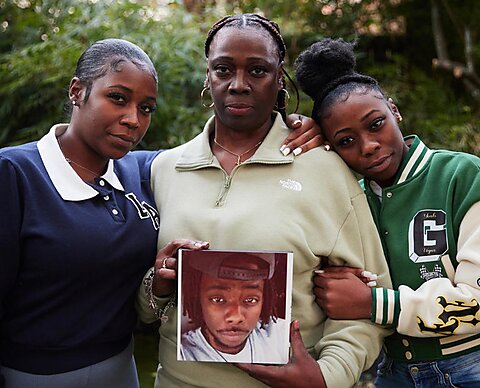Last spring, in a unanimous decision that could have been a major victory for police accountability, the Supreme Court struck a decisive blow to a deeply flawed legal doctrine. In Barnes v. Felix, the Justices rejected the idea that courts should only look at the “moment of threat”—the very instance an officer uses deadly force. The Court held that a full review of the “totality of the circumstances,” including the events leading up to the incident, is required.
This decision came from the tragic 2016 death of Ashtian Barnes, who was killed by Harris County, Texas, Deputy Constable Roberto Felix, following a traffic stop for unpaid tolls. As Barnes tried to drive away, Felix jumped onto the moving vehicle and opened fire, killing him. The Fifth Circuit Court of Appeals initially sided with the officer, applying its narrow “moment of threat” test that only focused on whether the officer was in danger at the precise second he fired his weapon. The Supreme Court called out this approach for using “chronological blinders” that ignored the full context of the encounter.
This ruling was a crucial step forward. In many legal battles, a unanimous Supreme Court victory might seem like the final word, but as we’ve seen, it can just be the beginning. On remand, the Fifth Circuit found that no genuine dispute of material fact existed. In other words, the panel decided that the question of whether Constable Felix’s actions were reasonable shouldn’t reach a jury. The panel concluded that qualified immunity foreclosed relief for the Barnes family.
The Framers intended for juries—comprised of ordinary citizens—to adjudicate disputes between citizens and their government. Consequently, assessing whether a police officer violated an individual’s Fourth Amendment right to be free from excessive force is precisely the type of judgment call the Framers tasked jurors to make. Yet, judges—who are frequently former courtroom advocates for the government—confect doctrines that lack a legitimate basis in law to shield the government from accountability.
It’s as if the Supreme Court removed the outer fence, but the Barnes family still had to cross a moat filled with crocodiles before reaching a jury. Thanks to the Fifth Circuit, the Barnes family fell into the moat and was eaten alive. The unfortunate reality is that a Supreme Court victory doesn’t guarantee justice. All too often, it’s just the first hurdle on a path dotted with obstacles. The Barnes family’s path to justice, tragically, has abruptly ended.
While the Supreme Court’s Barnes ruling serves as a vital vindication of long-standing guardrails on policing, the Fifth Circuit’s subsequent holding illuminates just how fragile and elusive the pursuit of justice can be.

